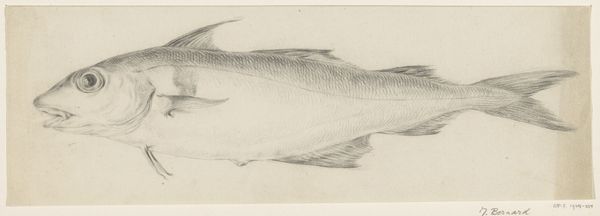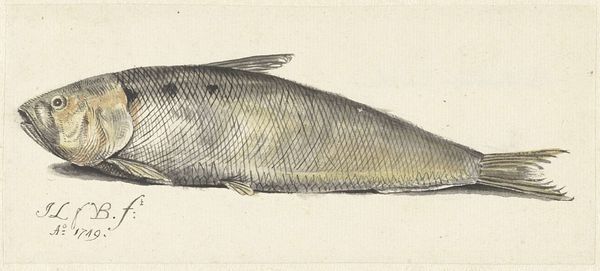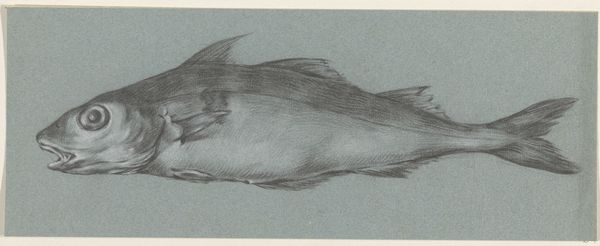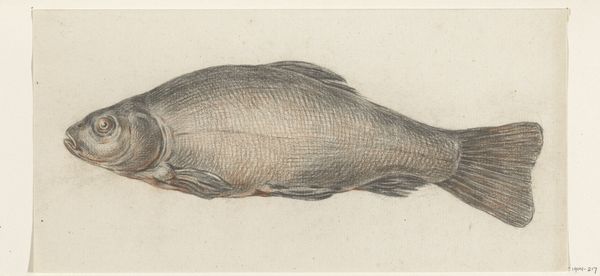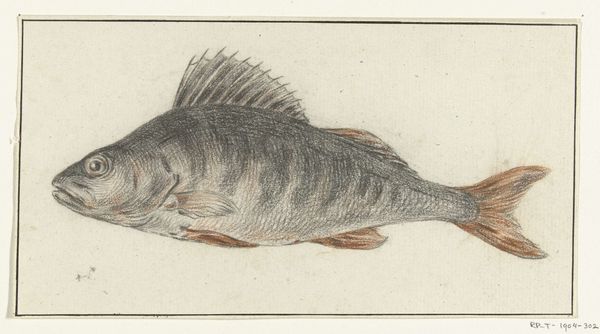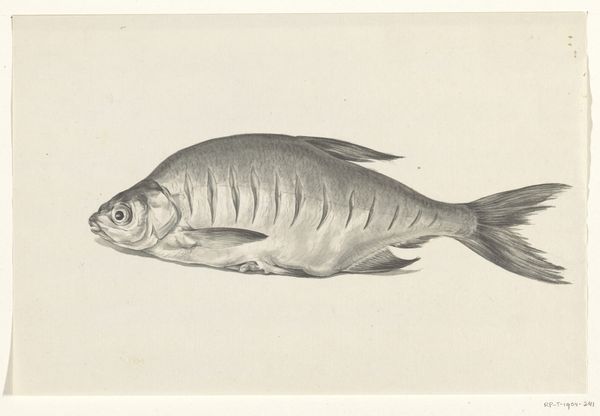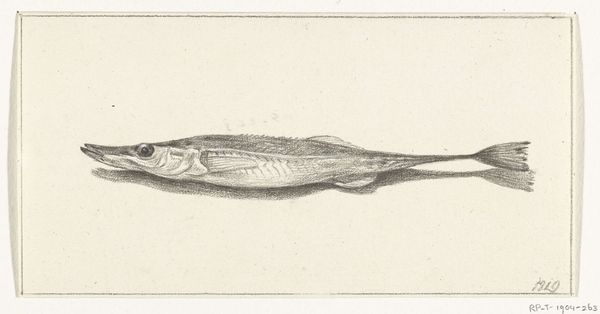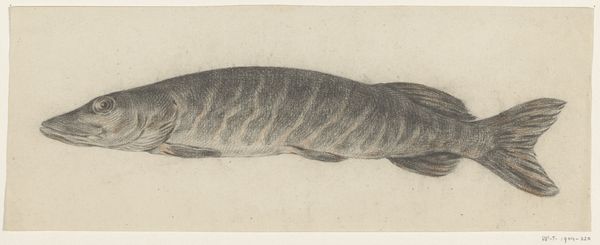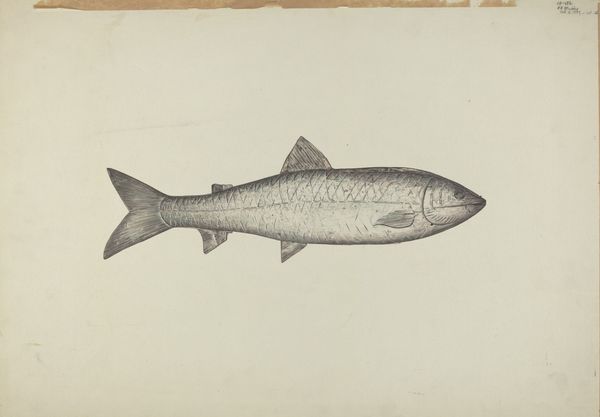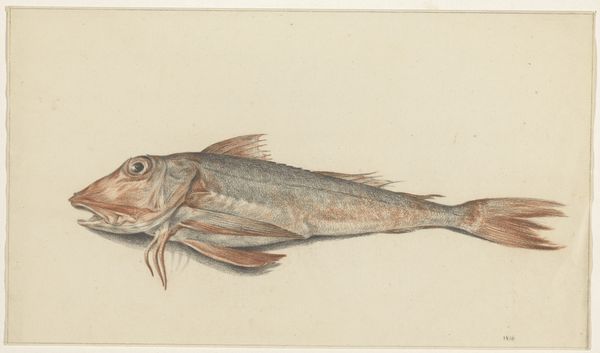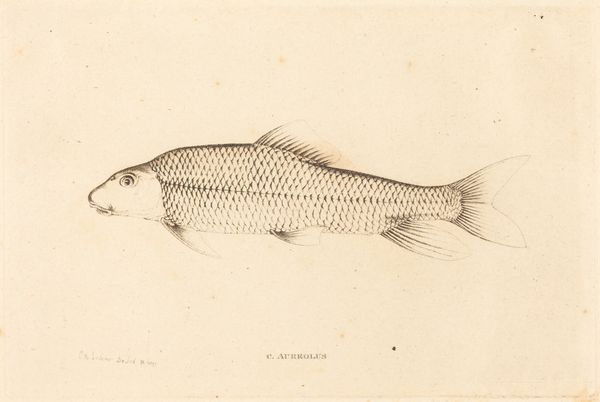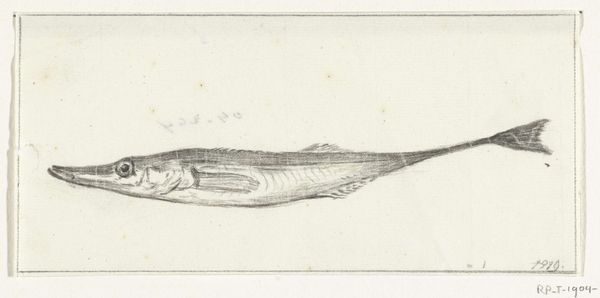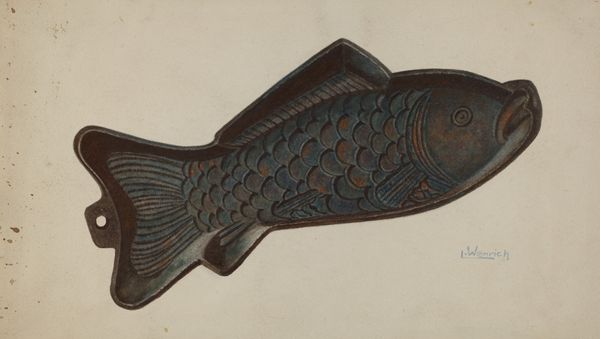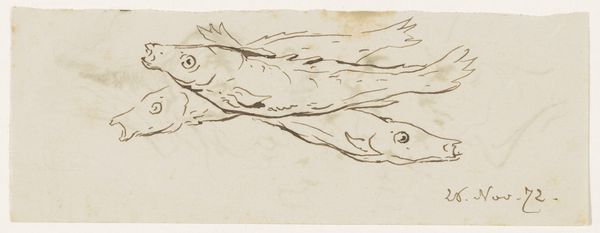
drawing, pencil
#
pencil drawn
#
drawing
#
amateur sketch
#
toned paper
#
light pencil work
#
pencil sketch
#
personal sketchbook
#
pencil drawing
#
pencil
#
sketchbook drawing
#
pencil work
#
academic-art
#
sketchbook art
#
realism
Dimensions: height 135 mm, width 363 mm
Copyright: Rijks Museum: Open Domain
Curator: Here we have "Vis, naar links"—or, "Fish, facing left"—penciled by Jean Bernard sometime between 1775 and 1833. You can find it in the Rijksmuseum's collection. Editor: Immediately, it strikes me as incredibly… peaceful. Just a simple rendering, but the artist captures this quiet stillness. The subtle gradations of pencil work almost make it shimmer. Curator: Indeed! Bernard's precision is remarkable. This drawing is really an exercise in observation, meticulously detailing each scale and fin. It’s academic in its realism. I would argue that a lot can be inferred, the political economy of fishing, gender dynamics in a family who relied on fishing income for food... Editor: It is gorgeous but how does the political economy inform my experience looking at the dead, almost translucent eyes of this poor creature? For me, this is an ecological statement. The fish feels utterly vulnerable on the page. What do you see? Curator: Okay, interesting… So, yes, I can understand that, but perhaps not intentional—Bernard seemed more interested in the technical challenge. Still, the drawing highlights a moment when natural resources and artistic study were inextricably linked. What seems a calm observation, in reality, can be seen as quite brutal from today’s ecological lens. We see the relationship of humans to the natural world. But, the fish stares into nothing and then the viewer stares at the fish! Editor: Yes. The exchange of the gaze across species lines can be so impactful in images like these, so you feel almost voyeuristic viewing something so private. So fragile and fleeting. It’s strange how a simple drawing on toned paper can provoke all these complicated thoughts. Curator: Precisely! And that's what makes art so compelling, isn't it? An amateur, small work that leaves such a mark on the collective psyche, through form, meaning and context.
Comments
No comments
Be the first to comment and join the conversation on the ultimate creative platform.
